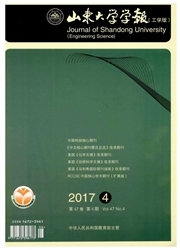

 中文摘要:
中文摘要:
考虑由回收商、再制造商和零售商组成的三级逆向供应链系统。其中再制造商雇用回收商通过向消费者手中买回方式回收废旧产品,并将再制造产品通过零售商再次销售。研究了纯分散式决策模型、再制造商和零售商联盟决策模型、回收商和再制造商联盟决策模型、集中式决策模型4种结构下的逆向供应链优化问题,分别求得不同结构下的回收和销售价格以及回收数量和市场需求。主要的研究结果包括:三级逆向供应链中的双边效应体现为回收价格的降低、销售价格的提高,且此效应随供应链分散决策程度的增加而加剧。最后,设计了合同机制协调此三级供应链系统。
 英文摘要:
英文摘要:
A three-echelon reverse supply chain consisted of a collector, a remanufacturer and a retailer was considered, in which the remanufacturer is a leader who hires the collector to acquire used products, and resells the remanufactured products through the retailer. The optimal decisions of collection and selling prices were derived for the pure decentral- ized system, the coalition of the remanufacturer and the retailer, the coalition of the collector and the remanufacturer, and the centralized system. The parameter sensitivity was also analyzed, and the double marginalization manifested as lower collection prices and higher selling prices, which was more prominent when the decentralization was higher. Fi- nally, contract schemes were developed to coordinate the three-echelon reverse supply chain.
 同期刊论文项目
同期刊论文项目
 同项目期刊论文
同项目期刊论文
 A multi-period ordering and clearance pricing model considering the competition between new and out-
A multi-period ordering and clearance pricing model considering the competition between new and out- Optimal acquisition and production policy in a hybrid manufacturing/remanufacturing system with core
Optimal acquisition and production policy in a hybrid manufacturing/remanufacturing system with core 期刊信息
期刊信息
